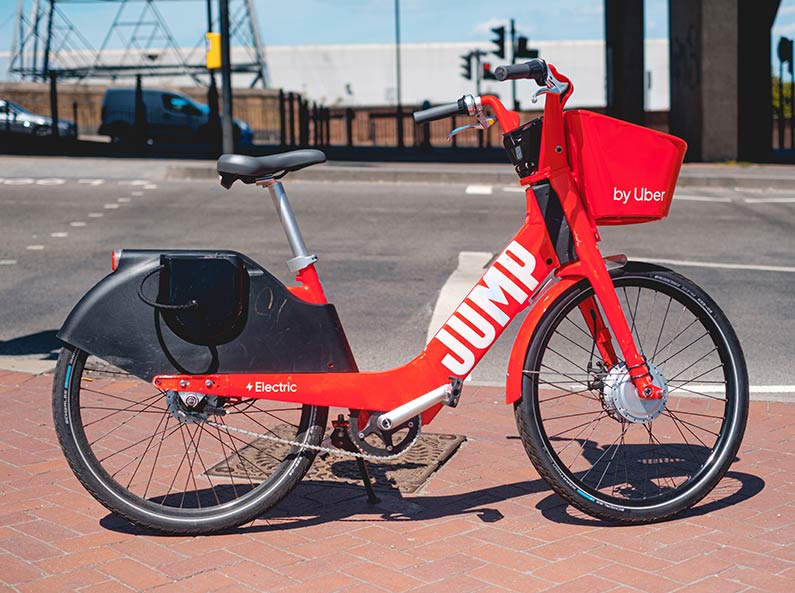In today’s globalized world, the outlook for starting your own courier business is promising. The rise of small, home-based businesses through social media platforms such as Instagram in recent years has provided new potential customer bases for logistics companies.
Before pushing too far forward, however, there are several factors to first consider for your own courier business. Let’s take a closer look at the steps you must take to ensure your business starts off on the right track.
Starting a Courier Business
- Choose the types of packages you want to deliver
- Pick a service region
- Select the types of vehicles you want to use
- Create a marketing strategy
- Arrange the financial details

Courier businesses are an important part of the global supply chain.
1. Choose the Types of Packages to Deliver
The first thing you should decide before getting into the courier industry is choosing the types of packages your business will deliver. You can opt for smaller parcels, which are best moved around by bicycle or on a scooter. Or, you could go for oversized package delivery.
Smaller packages are easier to transport, which makes their startup budget lower. Couriers who move packages with medicine, paperwork, and food are in high demand, and such deliveries are manageable with smaller vehicles.
Larger deliveries that deal in bulk goods, like ones involving manufacturing companies, can make you more money. But they require bigger vehicles and in general more money to run.
2. Determine the Service Region
Your service region also plays a role in the entry costs of your courier business. A large service area that caters to the entire country can be highly profitable, but requires money to get running. You can also try a smaller region, like an urban area, and focus on the needs of city residents.
Or you can start small, and gradually expand your courier business across state lines. It depends on how ambitious you are, and the amount of risk you’re willing to take. The more money you put in, the more is at stake.
3. Choose the Right Vehicle Type

Bikes and scooters are used more and more for courier businesses today.
Once you’ve determined the scope of your courier business, you should start thinking about how you’re going to move goods around.
Trucks
For bigger service areas and bulk deliveries, you’ll need to invest in delivery trucks. Using smaller vehicles to handle larger loads will ultimately hurt your courier business.
Trucks are expensive and require trained drivers to operate. Their large storage space comes at the cost of limited speed and maneuverability, making it better suited for deliveries over longer distances.
Cars and Bikes
If your services are limited to a particular region or area, and the packages you aim to deliver are easier to carry, you can opt for cars or bikes. They are cheaper and more fuel-efficient than a truck, but you will be limited to a certain market segment.
Cars and bikes also face the obstacle of heavy traffic in urban environments, although bikes have a significant advantage over cars in this regard. The tradeoff is that bikes offer limited capacity and security for the packages, as compared to cars.
eBikes
Another route you can go for your courier business is to use electric bikes or eBikes. eBikes are similar to regular bikes but provide a bit of a boost for riders in the form of an electric rechargeable battery. They can be bought or rented, with some high-quality eBikes falling under $1000 per vehicle— making them an affordable option.
eBikes are especially well-suited for courier work in cities. Urban environments where massive traffic jams slow down delivery trucks and other large vehicles are less of a problem for eBike riders, who can more easily bypass this traffic.
Electric bikes are still a relatively new transportation method, and many existing courier companies haven’t incorporated them into their business. But the future for eBikes and courier work is promising. A study conducted in Australia showed that eBike riders were able to make around 30 percent more food deliveries than those in cars.
4. Develop a Marketing Strategy

Uber is one of many businesses starting to use eBikes for delivery services.
An essential part of establishing your courier business is to market it effectively and efficiently. When you enter a competitive industry fighting against major companies like Amazon and DHL, your marketing needs to be strong.
A good option for a new business is to research current trends in marketing, such as content marketing. Investing a portion of your budget into building an informative website with well-written content can help you attract customers across the internet.
You can also build your online presence by strategically using social media platforms such as Facebook and Instagram to directly market your services and interact with consumers. On those platforms, clearly state information about your business, such as your:
- contact information (address, email, phone)
- rates (you can also list “negotiable” depending on your business model)
- unique selling points (the technology you use, the price, etc.).
Transparency helps customers who stumble upon your page quickly assess if your courier business is right for them.
Another option is to identify local businesses that require courier assistance and contact them directly while explaining the benefits you can provide to their operations.
5. Make Sure your Finances are in Order
Keeping your books balanced is crucial if you want to continue operating well into the future. To ensure your business’s financial stability, focus on identifying your monthly expenses in the initial stages, including vehicle insurance, cargo insurance, and fuel expenses. Other associated overhead costs include advertising costs, utility expenses, and any loan repayments you may owe.
Another financial aspect to take a look at is the profit margin for your business. You’ll need to decide upon a price that can cover the costs of running the company while also remaining competitive in the market.
Final Thoughts
Starting a courier business is an exciting venture for those interested in working in an ever-evolving industry that uses modern-day advancements in technology to improve a centuries-old practice.
The courier industry’s future looks promising, as rapidly changing consumer demands have allowed it to experiment with innovative transportation methods such as eBikes.
Starting your own courier business is a worthwhile undertaking if you’re a savvy entrepreneur looking for a new opportunity. The importance of courier services has never been clearer than it is today.



